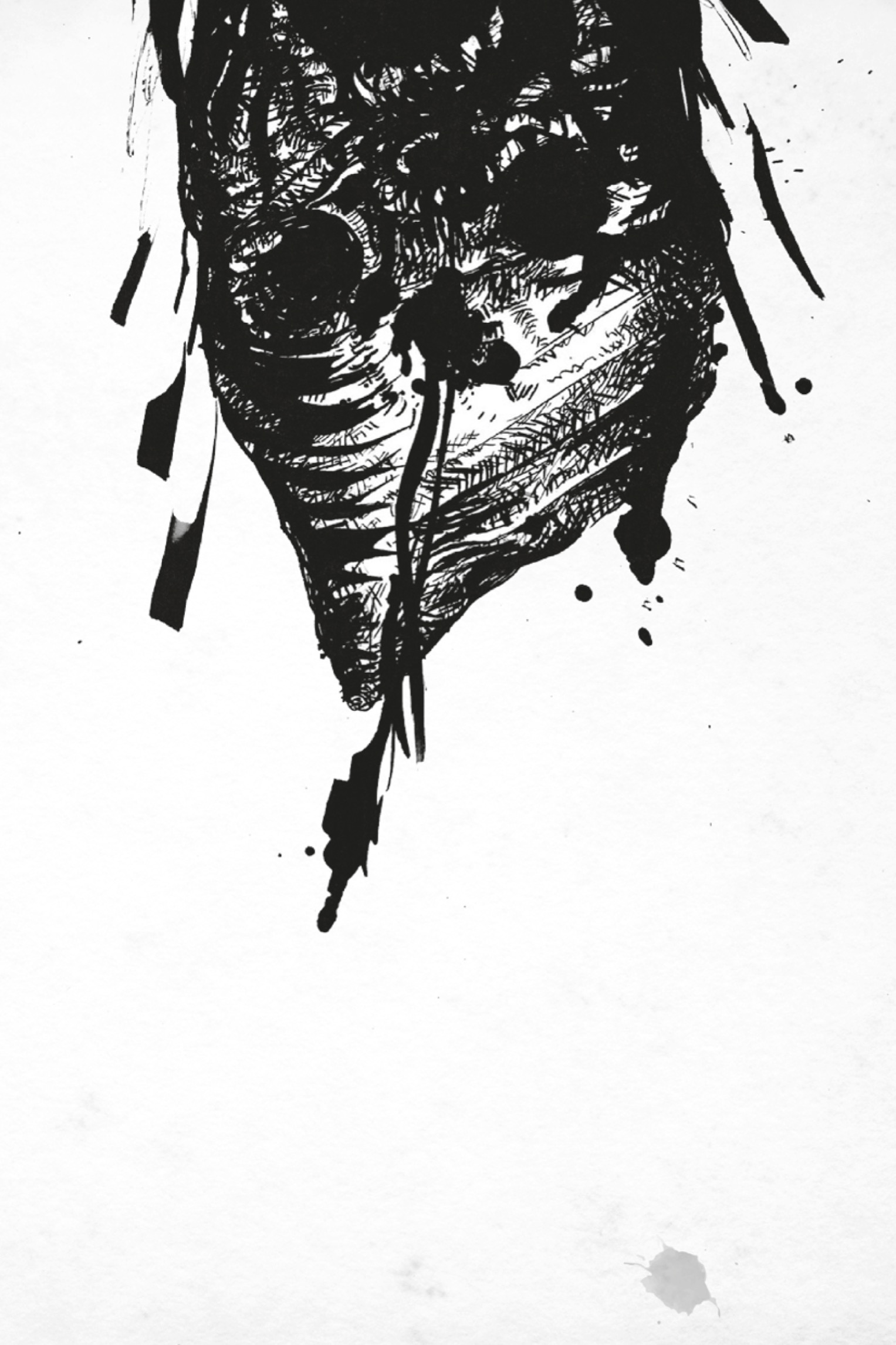11.
I had no notion upon waking that this day should be so extraordinary. But so it is. I have fresh company in my life! Such newness today. I am so grateful.
Let me tell you straight: there is a boy living at the back of a drawer in the chart room. I found him only by pulling the drawer out the entire way. He has been here all along, but he kept himself so quiet I did not hear him. Today, though, being so much in the captain’s room, among the captain’s property, I found him out! This new life!
What a shock it is, after all this time to see another face.
I found him just this morning (I call it morning, you’ll not mind that), in the top drawer of the captain’s desk, way at the back underneath everything. Otherwise I’d have known him sooner. Another picture! Another face. I think it must be that Tugthus has a son! But why, son of Tugthus, are you kept in the drawer?
Did you perhaps disappoint? Did you disobey? Did you run away, recreant? You do look a little difficult. Did it hurt very much, the fall toward adulthood? Never mind! I stand by you, whatever your crimes.
Does the shark own my art, or do I?
But forty candles left.
There are hooks in the main cabin, for lanthorns perhaps, for fish business. I have seen them there. They hold fast and seem strong. I have been wondering over them for some time now. Earlier this day (or this night; again you’ll forgive me) I pulled a bench up close to one. I hooked my clothes around the back of my neck, over the hook, until I was confident the hook had a good grasp. Then I kicked the stool away. I hung there. Upon the hook. My feet inches from the ground.
I was suspended. I was a prisoner of the hook. I kicked the wall, I made dents, but the hook would not let me go.
Help! Help!
What, I thought, should happen if ill-face finds me here?
I could not get down. Struggle as I might, I was a prisoner of the hook. What started as an experiment became a torture.
I hung as if I were a coat. Some mere thing and not the person I know myself to be. An outrage, to be so imprisoned. I was a thing myself!
Pity, pity the things.
I know not how long I struggled, dangling there, until at last my rotten clothing gave way and I dropped painfully to the floor.
I scrambled back to the captain’s rooms before the ill-face could find me. Such horrors in my head. Such thoughts.
I’ll tell you something straight: I have grown a very great hatred of hooks.
I think I will, I think I may, Captain Tugthus, give words to your life. For the story of your fate has come to me, in a dream. I saw him, the ruddy captain, upon mountainous waves, climbing high and falling low, clinging to a dislodged piece of Maria that came from the main vessel as the great fish attacked her. About his length it was, this wood, and width, too, like a dancing partner. Tugthus was separated from his crew; they were surely clambered thick upon a dinghy and made it safe to land. Not so the captain, for he was the sea’s plaything. He was thrown and lapped and chewed upon, but he did not let go of his Maria piece. Not him. For weeks he was sent this way and that, back and forth, upward and down, his brain beaten, his body withered. But in his head, still there, was Harald Tugthus: Captain.
His thoughts were all Denmark, and daughter and wife—son, too, though perhaps less so, or perhaps sometimes more. He saw them, his family, in the deeps below, waving at him. In the long bobbing nights the ghosts came, but he did not let go. In time, he grew so waterlogged that the only tight-warm place was deep in his skull, which his piece of Maria kept dry above the endless drink. What things he saw while floating, all his life sailing by. He never called out, nor ever despaired. On and on, there and there, now storming, now calming, a red beacon adrift. I cannot speak for all the greens of his misery, I cannot name you his blues or his grays. Blacks I can do, those I know. But seaweed though he had nearly become, the flame of his hair was still burning bright when at last did he, Captain Harald, cease his traveling.
He was washed ashore, barely breathing, not far from Cádiz, having been pushed there by all the dead of Trafalgar. It was said he was more fish than man by then, that in parts his skin had grown scales and his eyes were become fish eyes. Such tales are told of seafaring folk, of course, and not all are to be credited. All I know for certain is that they never could separate him from his piece of Maria, even after he was returned to his home and wife.
He had grown, in his time afloat, highly sensitive, the captain had. Whenever they ran him a bath, he wept. Even the sight of someone blowing into a steaming cup of broth, creating that limited whirlpool, unnerved him. He never did go down to the docks again. But he ate fish, still, and with gusto—only fish, in fact, and preferred it uncooked.
Whether Captain Tugthus ever allowed his son home, I cannot say.
My thoughts are all of freedom now.
But he has gone home, Tugthus. I do report it.
He is at home. His hair is grayer now, but a hint of red still remains.
